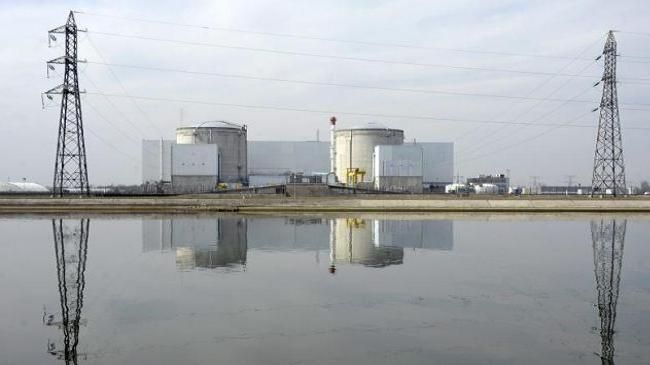The nuclear disaster at Fukushima caused nuclear nations to rethink their use of nuclear power to generate electricity. Germany and Switzerland have decided to close existing nuclear reactors and not to construct any new reactors. France is much more dependent on nuclear power than any of the other thirty one nations that use nuclear power. About seventy five percent of France's electricity is currently generated by fifty eight operating nuclear power reactors.
When Francois Hollande was running for President of France in 2012, he promised to reduce France's nuclear power share to fifty percent of France's electricity by 2025. He also promised to close the Fessenheim reactor, France's oldest nuclear power reactor. Following Hollande's election and a review of national energy policy, the Hollande administration has announced that nuclear's share of electricity will indeed by reduced to fifty percent by 2025. Nuclear generating capacity will be capped at the current level of sixty three gigawatts. So, if any new reactors are brought online, an old reactor will have to be retired. One new reactor is currently under construction with estimated completion by 2016. The Fessenheim reactor will likely be shut down before the new reactor is brought online.
In addition to the new goals for nuclear power generation, France's Nuclear Safety Authority (ASN), the agency that regulates the nuclear industry in France, has been given the authority to impose greater fines on nuclear plant operators for failures in plant safety or the failure to implement required safety enhancements.
There will be regular reviews of France's energy policy. The first review will cover the period of 2015 to 2018 and then a new review will be held every five years. France also has ambitious goals for reduction in carbon dioxide emissions, increase in renewable energy sources, reducing energy consumption and vastly increasing the number of electric cars in use in France. The French Energy Minister has said that they are not going to abandon nuclear power.
A nuclear expert in France recently discussed three options that France has with respect to nuclear power. First, France could follow Germany in eliminating nuclear power for generation of electricity. Second, France could commit to nuclear power and build new generations of nuclear reactors to replace the old reactors that will have to be decommissioned. Third, France could opt to continue using nuclear power but cap or reduce its proportion of the electricity generated. He pointed out that there is currently a shortage of graduates in nuclear science from French engineering schools and many of the staff who currently operate French nuclear reactors are retiring. He said that if France chose to stop using nuclear power, the availability of new nuclear engineers would not be important. If France chose to go all in on nuclear power, then the students considering careers in the nuclear industry would be motivated to go into nuclear engineering. His big concern was that if France chose the third alternative of an intermediate stance on nuclear power, there was a serious danger that students would decide that work prospects in nuclear engineering was too uncertain to be attractive. A shortage of qualified nuclear engineers to operate the nuclear power plants could seriously impact France's plans to continue the use of nuclear power.
Fessenheim nuclear power plant:
